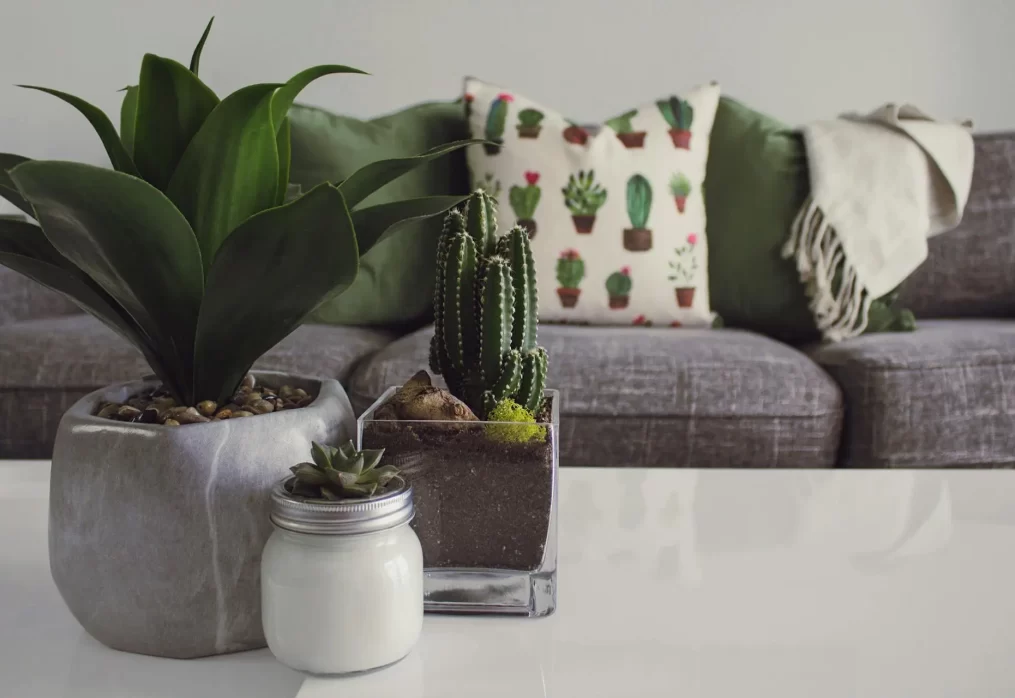Plants you should never keep inside your home, as per Vastu
When incorporating plants into your home, it’s important to consider Vastu Shastra principles to maintain harmony and positive energy. For example, the henna plant Vastu direction is typically recommended in the northwest part of the house for balance. However, plants not to be kept at home as per Vastu include thorny species like cacti, as they are believed to disrupt peace.
Wondering which plants are not good for home Vastu? Avoid keeping tamarind, cotton, or banyan tree in the house, as these are considered inauspicious. In fact, people often ask, “Is banyan tree good for home?” or “Banyan tree in house good or bad?” – and the answer is generally that it’s better suited for temples than residential spaces. Similarly, bad luck plants in front of the house, like dead or decaying trees, should be removed to prevent negative energy. Choosing the right plants thoughtfully can enhance your home’s energy while avoiding those trees which are not good for home ensures a harmonious living space.
Plants you should never keep inside your home, as per Vastu
Vastu Shastra is an old Indian building science that has been helping people for hundreds of years figure out how to make their homes more peaceful. Spiritual thoughts are mixed with fire, water, air, earth, and space to create a nice mood or a peaceful place to live. Vastu Shastra says that the orderly design of a home affects the flow of energy and the health of the people who live there.
Plants in a house are also part of this practice, which is mostly about building planning, rooms, furniture, and decorations. Plants are often thought to be good for any living area because they bring life and beauty to it. However, Vastu Shastra labels some plants as bad because they are thought to be able to throw off the balance of forces in the home. Let’s look at some bad Vastu plants to find the worst ones.
Vastu Shastra talks about plants. What does it say?
Vastu Shastra emphasizes the importance of plants in our lives, not only for their aesthetic value or ability to produce oxygen but also for the energy they add to our houses. Plants, in the eyes of Vastu, are living beings that give out their own energy fields. This energy can combine with the home’s energy to affect the health, wealth, and well-being of the people who live there.
Vastu Shastra, like the Chinese idea of Feng Shui, is a practice for creating buildings that promote peace and wealth in their immediate surroundings. This includes homes, schools, commercial buildings, and retail places. The practice of Feng Shui and Vastu Shastra also includes the strategic placement of things within the home to achieve a balance of good and bad energy. According to the ideas of Vastu Shastra, the energy of many plants may be either positive or negative.
- People believe that negative Vastu plants bring disaster and conflict.
- People believe that positive Vastu plants bring wealth, happiness, and peace.
Different types of plants are put into groups based on their growth habits, stems, and the shape and color of their leaves and flowers, among other things.
How Do Plants Affect the Vastu of a Home?
How do Vastu Shastra’s ideas connect with plant characteristics? The life force and traits of plants are thought to affect a home’s energy. According to Vastu, plants have different amounts of energy and unique primordial traits that can either improve or clash with the energies of any particular place. For example, it is thought that healthy, growing plants attract wealth and happiness, while dead or decaying plants emit bad energy. Furthermore, some plants are regarded as negative Vastu plants due to their natural qualities. Even if they are healthy and well-cared for, these plants are nonetheless said to bring bad luck to the house. Another factor that affects the room’s energy flow is the position of the plants inside it. Plants positioned in the wrong way may disrupt the natural energy flow and cause problems.
Plants That Are Not Good, As Per Vastu
Some plants are admired for their cultural importance, yet Vastu considers them bad due to their dynamic nature. The following are a few of the worst plants as per the Vastu:
1. Babul Plant (Acacia Arabica)
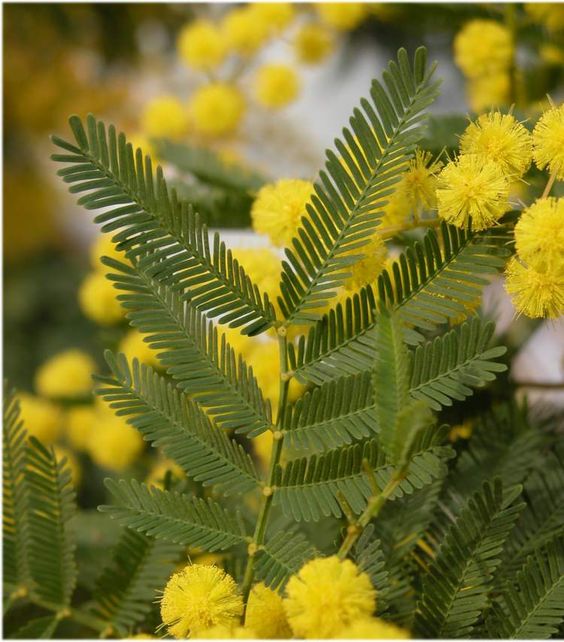 According to the Vastu Shastra, babul (or babool) should be grown outside the home. It may have bad effects on relationships if grown indoors. Babul, with its thorny branches, is considered bad in the Vastu Shastra, and it is generally thought that the presence of thorns within a home can produce negative energy and prevent the free flow of positive energy.
According to the Vastu Shastra, babul (or babool) should be grown outside the home. It may have bad effects on relationships if grown indoors. Babul, with its thorny branches, is considered bad in the Vastu Shastra, and it is generally thought that the presence of thorns within a home can produce negative energy and prevent the free flow of positive energy.
2. Banyan Tree (Ficus benghalensis)
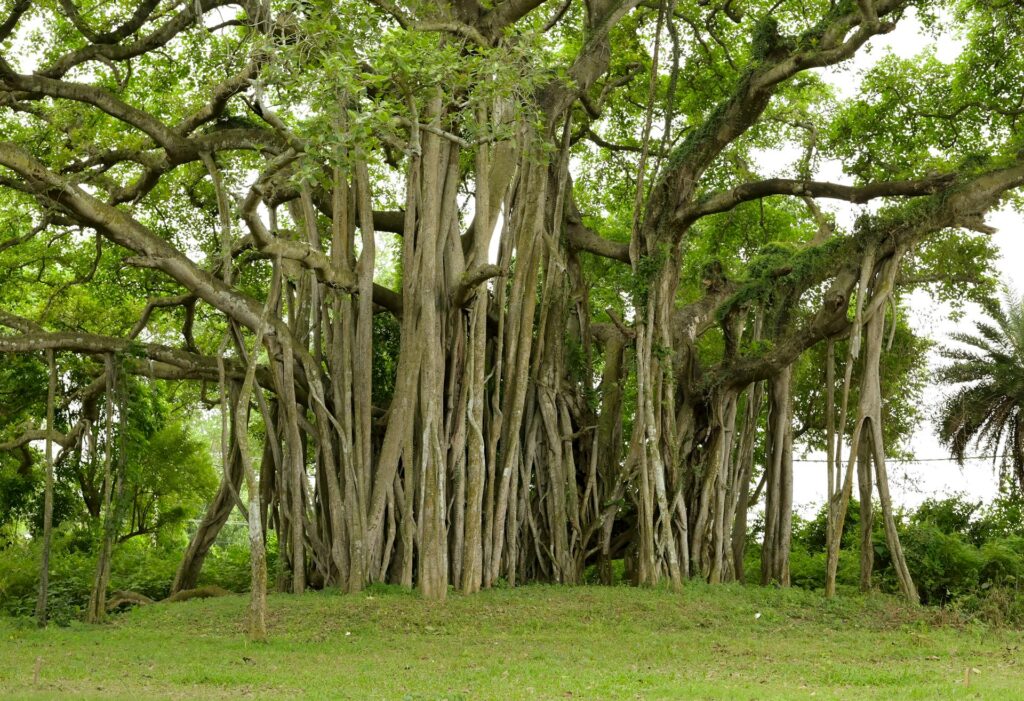 Hindus consider banyans helpful; however, they shouldn’t be grown inside or near homes. It’s vaastu or not, but the banyan tree has deep roots and a long life. Growing them in a tub or on a roof won’t last long, and their roots would collapse the building. Another fact is that you shouldn’t sleep under a banyan tree. The science and logic behind this are that the banana tree releases carbon dioxide (CO2) at night, which may cause suffocation if it is located in an area with low oxygen levels. That’s why our ancestors avoided sleeping beneath banana trees at night for precisely this reason. However, you may keep the banyan tree in “bonsai” form if you wish.
Hindus consider banyans helpful; however, they shouldn’t be grown inside or near homes. It’s vaastu or not, but the banyan tree has deep roots and a long life. Growing them in a tub or on a roof won’t last long, and their roots would collapse the building. Another fact is that you shouldn’t sleep under a banyan tree. The science and logic behind this are that the banana tree releases carbon dioxide (CO2) at night, which may cause suffocation if it is located in an area with low oxygen levels. That’s why our ancestors avoided sleeping beneath banana trees at night for precisely this reason. However, you may keep the banyan tree in “bonsai” form if you wish.
3. Cactus
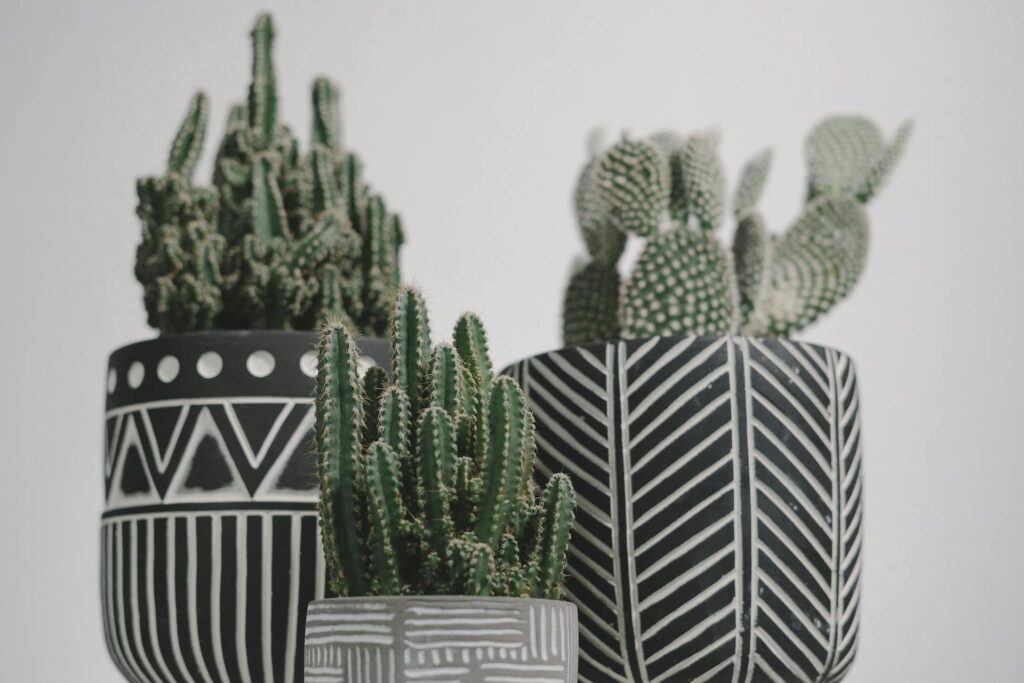 Plants with thorns, such as cacti, are not allowed inside the home, in the yard, or outdoors. Thorny plants, if present, can cause harshness, quarrels, and fear from opponents due to the characteristics of their subtle energies. Shastra allows a few prickly plants in the home. Rose is among the group. Shastra’s advice on tree planting is linked to the subtle energy of trees, plants, and their psychological states.
Plants with thorns, such as cacti, are not allowed inside the home, in the yard, or outdoors. Thorny plants, if present, can cause harshness, quarrels, and fear from opponents due to the characteristics of their subtle energies. Shastra allows a few prickly plants in the home. Rose is among the group. Shastra’s advice on tree planting is linked to the subtle energy of trees, plants, and their psychological states.
4. Caladium
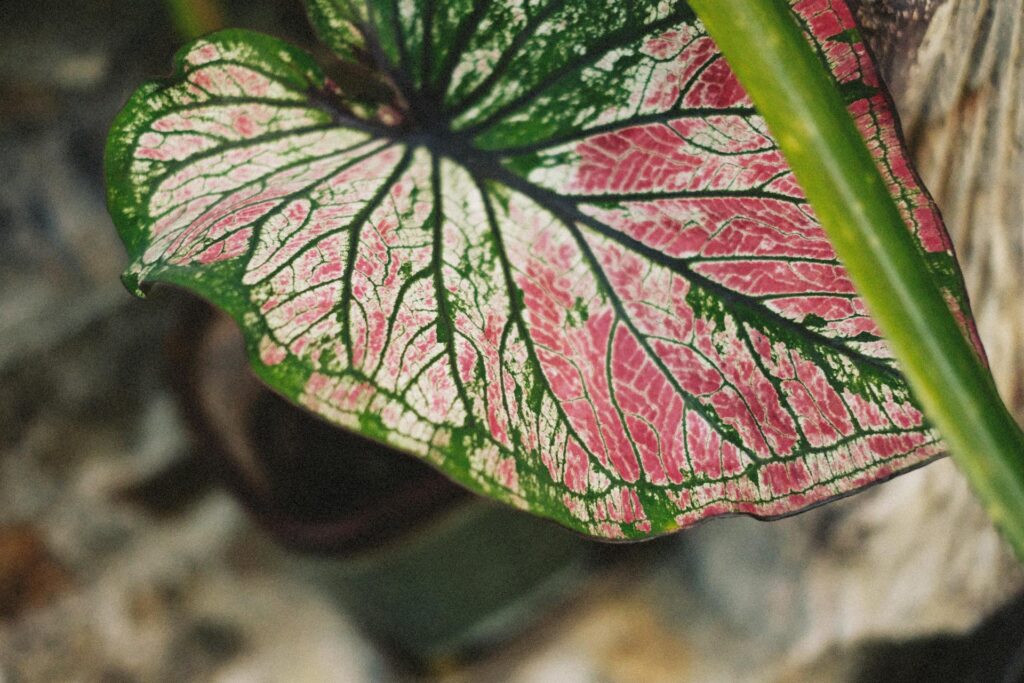 Caladium plants, also known as “Elephant Ear,” are famous for their colorfully patterned leaves. Nevertheless, according to Vastu, their chaotic energy and bright colors can cause discomfort. It’s best not to bring caladiums indoors.
Caladium plants, also known as “Elephant Ear,” are famous for their colorfully patterned leaves. Nevertheless, according to Vastu, their chaotic energy and bright colors can cause discomfort. It’s best not to bring caladiums indoors.
5. Cotton Plants (Gossypium spp.)
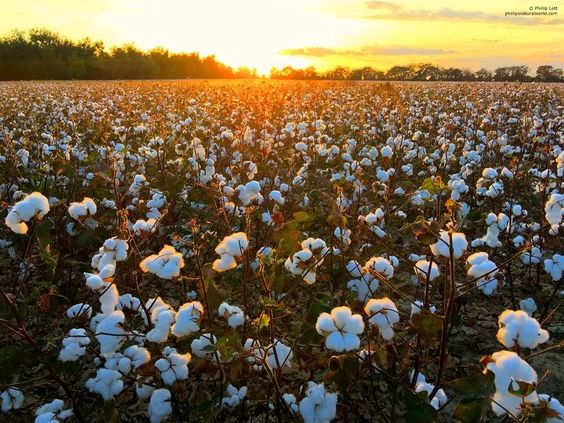 According to Vastu principles, cotton trees are considered undesirable in a house, despite their link with raw materials and important goods (textile production). There is a theory that its thorny pods and spiky nature bring bad energy into the home. Cotton plants may hinder Vastu’s goal of a balanced and happy setting. Therefore, cotton plants are not suggested as indoor décor.
According to Vastu principles, cotton trees are considered undesirable in a house, despite their link with raw materials and important goods (textile production). There is a theory that its thorny pods and spiky nature bring bad energy into the home. Cotton plants may hinder Vastu’s goal of a balanced and happy setting. Therefore, cotton plants are not suggested as indoor décor.
6. Dead or dying plants
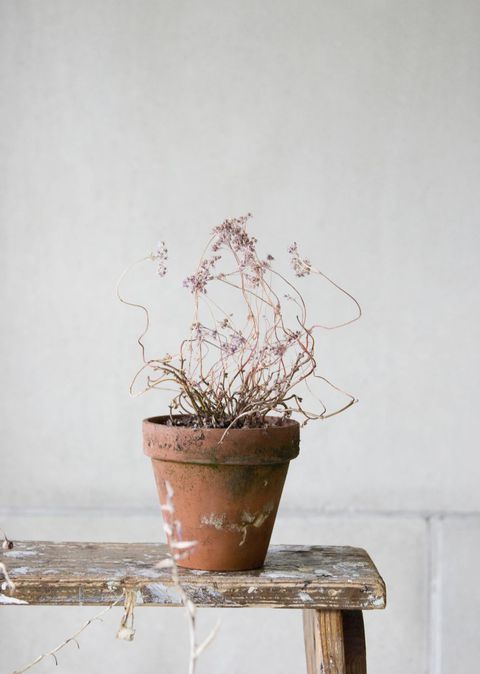 Vastu promotes energy in a living world, and dead or dying plants may release negative energy that might affect the well-being of people who live there. Decaying and stagnant plants are said to upset the space’s liveliness and good energy flow. Therefore, it is suggested to get rid of these plants quickly and replace them with healthy ones to recover a more positive energy balance.
Vastu promotes energy in a living world, and dead or dying plants may release negative energy that might affect the well-being of people who live there. Decaying and stagnant plants are said to upset the space’s liveliness and good energy flow. Therefore, it is suggested to get rid of these plants quickly and replace them with healthy ones to recover a more positive energy balance.
You might also like – 9 Indoor Plants That Bring Peace and Positivity
7. Dieffenbachia
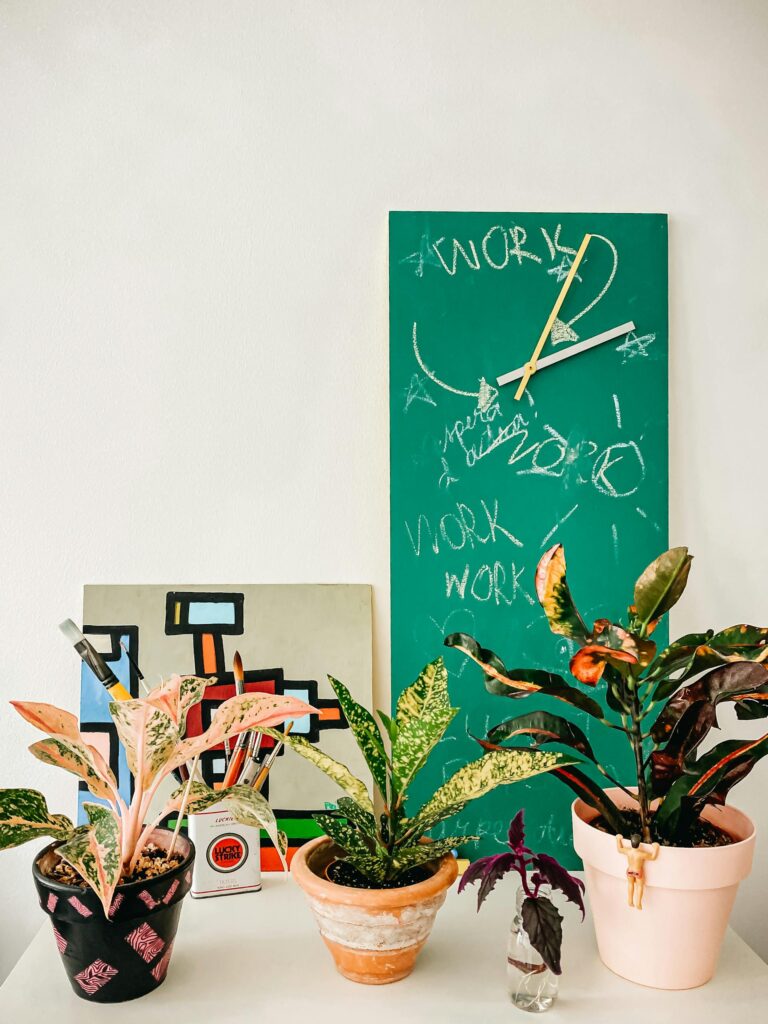 Vastu has a bad link with the Uninformed Cane plant. Its name suggests a lack of communication, which relates to the idea that it might limit good conversation within a home. Uninformed Cane’s energy might limit conversation, causing misunderstandings and conflicts.
Vastu has a bad link with the Uninformed Cane plant. Its name suggests a lack of communication, which relates to the idea that it might limit good conversation within a home. Uninformed Cane’s energy might limit conversation, causing misunderstandings and conflicts.
8. English Ivy (Hedera helix)
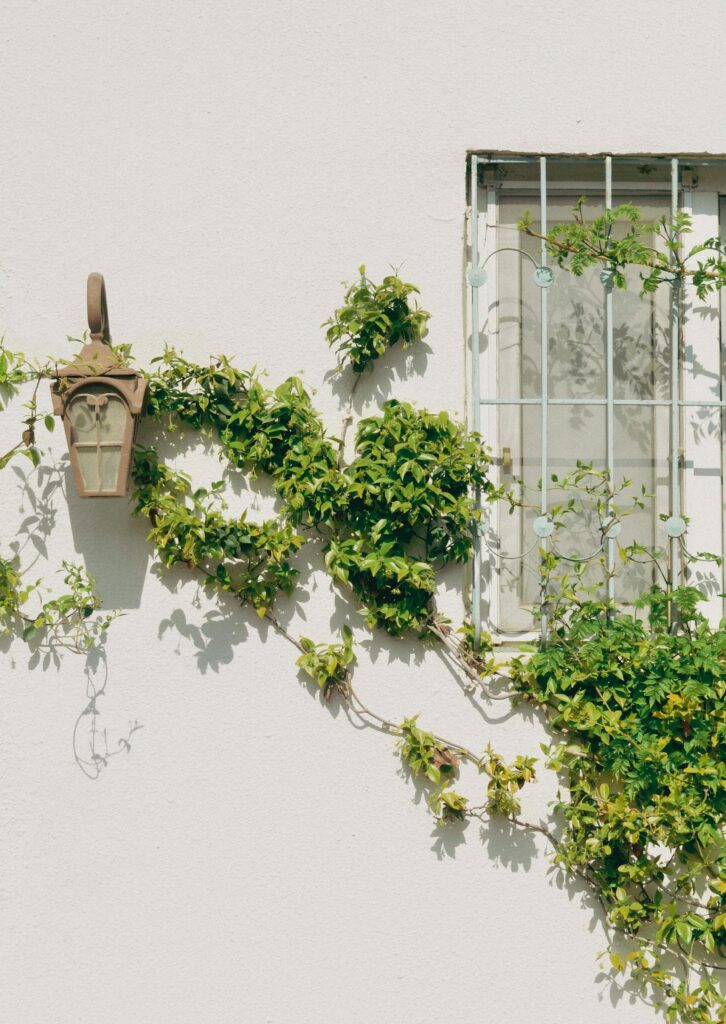 The English ivy, a famous climbing plant, is considered negative in Vastu. This plant, despite its beauty, is believed to bring negativity, strife, and even disorder into the home. This is because it is a possibly deadly plant. It is also deadly if eaten, so kids and animals should be kept away from it. Although you may keep it in hanging pots out of reach or on a trellis if you want to bring it home,.
The English ivy, a famous climbing plant, is considered negative in Vastu. This plant, despite its beauty, is believed to bring negativity, strife, and even disorder into the home. This is because it is a possibly deadly plant. It is also deadly if eaten, so kids and animals should be kept away from it. Although you may keep it in hanging pots out of reach or on a trellis if you want to bring it home,.
9. Lilies
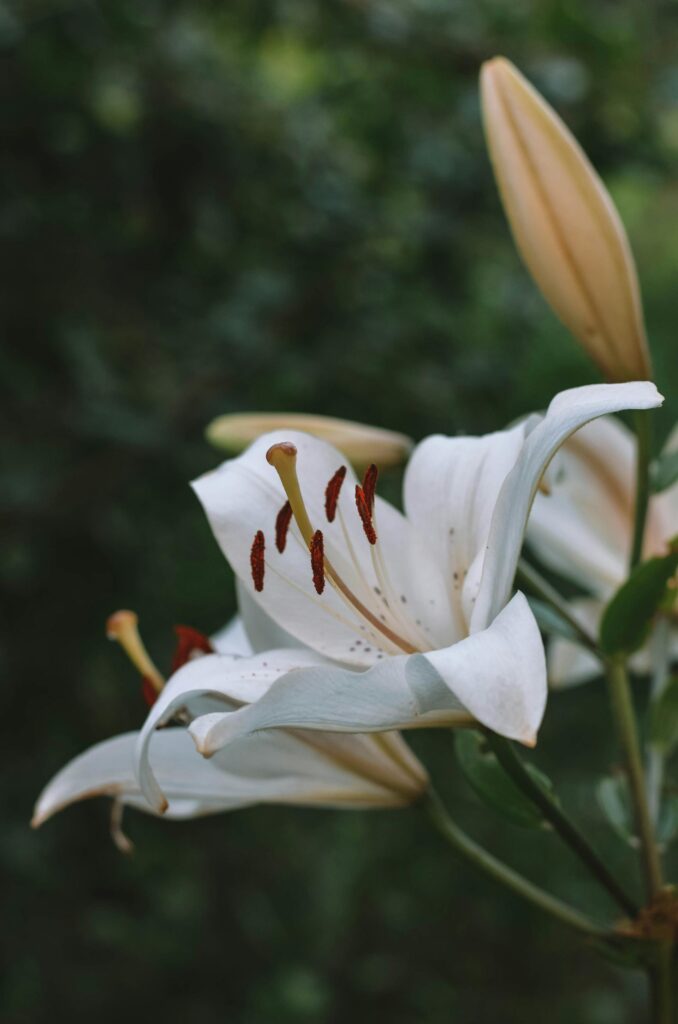 Lilies are considered bad in Vastu due to their energy. There is a belief that lilies send an energy that can cause a sense of sadness and an uneasy atmosphere. However, according to scientific research, lilies are among the most toxic plants, and pets are especially sensitive to their effects. Some lilies are safe for pets, especially cats, while others might be dangerous if eaten. Every component of the lily plant, from the leaves to the flower, may be dangerous to a pet. Therefore, it is important to be aware of which lily kinds are pet-friendly. Some examples of lilies types include Tiger, Asiatic, Rubrum, and Daylilies. Before taking a lily into your house, you must prove its species.
Lilies are considered bad in Vastu due to their energy. There is a belief that lilies send an energy that can cause a sense of sadness and an uneasy atmosphere. However, according to scientific research, lilies are among the most toxic plants, and pets are especially sensitive to their effects. Some lilies are safe for pets, especially cats, while others might be dangerous if eaten. Every component of the lily plant, from the leaves to the flower, may be dangerous to a pet. Therefore, it is important to be aware of which lily kinds are pet-friendly. Some examples of lilies types include Tiger, Asiatic, Rubrum, and Daylilies. Before taking a lily into your house, you must prove its species.
10. Mehndi plants (Lawsonia inermis)
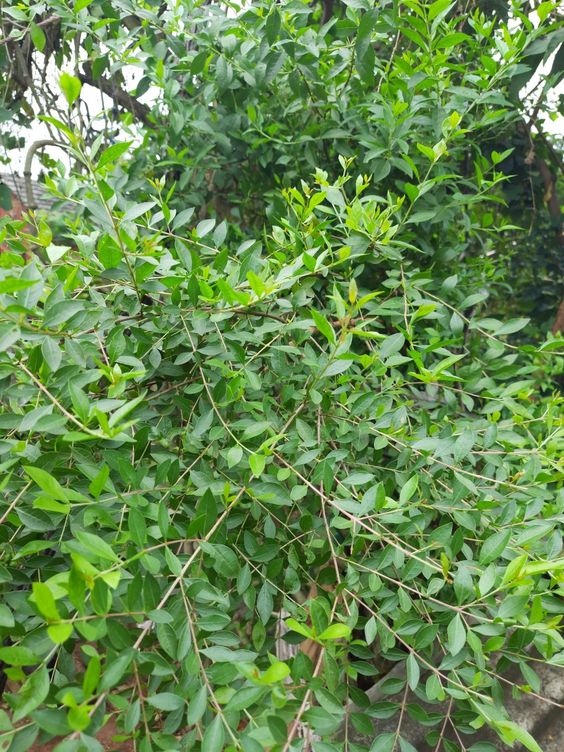 Mehndi, also known as Henna, is a plant of cultural and traditional importance, but its energetic qualities are viewed badly in Vastu. This plant is connected with bad energy and disruptive effects in the home because of its staining capabilities (of dark shades). It may mean that energy from Henna may cause trouble and war.
Mehndi, also known as Henna, is a plant of cultural and traditional importance, but its energetic qualities are viewed badly in Vastu. This plant is connected with bad energy and disruptive effects in the home because of its staining capabilities (of dark shades). It may mean that energy from Henna may cause trouble and war.
Conclusion
According to Vastu principles, the classification of these plants as negative comes from the idea that they can upset the harmonious flow of energy within a living area. Even though personal views and traditional practices play a role in choosing plants, it’s important to make such choices with attention and awareness, combining old customs with current knowledge and personal tastes. Find the growing wonders of Greenkin indoor and outdoor plants, which not only make your place seem good but also help you feel better and create more peace, harmony, and positive energy in your life.
People Also Ask About Plants and Vastu
Which plants should be avoided at home as per Vastu?
As per Vastu Shastra, thorny plants like cactus and plants that release milky sap should be avoided at home. Such plants are believed to create negative energy, stress, and imbalance, especially when kept inside living areas.
Which indoor plant should we not keep in the home?
Indoor plants like cactus, bonsai, and dried or artificial plants should not be kept inside the home. These plants are associated with stagnation, blocked growth, and negative vibrations according to Vastu beliefs.
What is the luckiest plant inside the house?
Tulsi is considered the luckiest plant to keep inside or around the house. It is believed to attract positive energy, peace, good health, and prosperity while also purifying the surrounding air naturally.
वास्तु के अनुसार घर में किन पौधों से बचना चाहिए?
वास्तु के अनुसार घर में कैक्टस, कांटेदार पौधे, बोन्साई और सूखे पौधे नहीं रखने चाहिए। ऐसे पौधे नकारात्मक ऊर्जा, तनाव और आर्थिक बाधाओं का कारण माने जाते हैं।
घर में कौन सा पेड़ नहीं रखना चाहिए?
घर के अंदर पीपल, बरगद या बड़े आकार के पेड़ नहीं रखने चाहिए। इन पेड़ों की जड़ें और ऊर्जा घर के वास्तु संतुलन को बिगाड़ सकती हैं और जगह की कमी भी पैदा करती हैं।
I recommend checking out:
- 5 gorgeous flowering plants to bring home in summer
- The Best Vastu-Friendly Plants to Keep in Your Living Room
- 10 Stress Relieving Indoor plants for home
- 10 plants you can easily grow in a bottle
- 5 Easy Tips to Maintain a Tulsi Plant at Home
- 5 Medicinal Plants to Grow at Home
- 10 palm plants to grow at home
Last Updated on 4 weeks ago by Anjali Mehra Ph.D. in Horticulture (Punjab Agricultural University)
- Best Lawn Grass for Cold Climate in Kashmir - March 1, 2026
- Lawn Grass Lifespan in India – Which Grass Lasts Longest? - February 23, 2026
- Can Lawn Grass Grow Without Direct Sunlight? (2026 Expert Guide) - February 12, 2026
